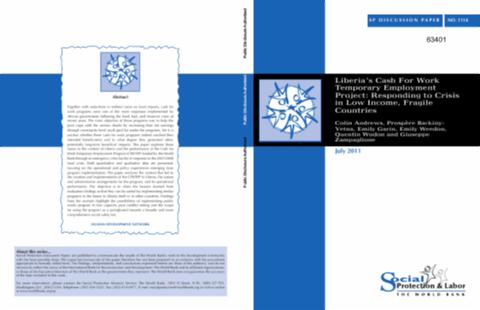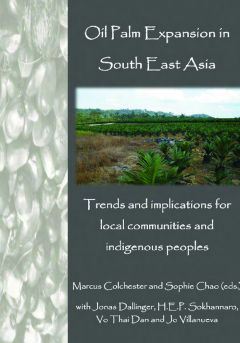Liberia's Cash for Work Temporary Employment Project
Together with reductions in indirect taxes on food imports, cash for work programs were one of the main responses implemented by African governments following the food, fuel, and financial crisis of recent years. The main objective of those programs was to help the poor cope with the various shocks by increasing their net earnings through community-level work paid for under the programs. Yet it is unclear whether these cash for work programs indeed reached their intended beneficiaries and to what degree they generated other, potentially long-term beneficial impacts.





